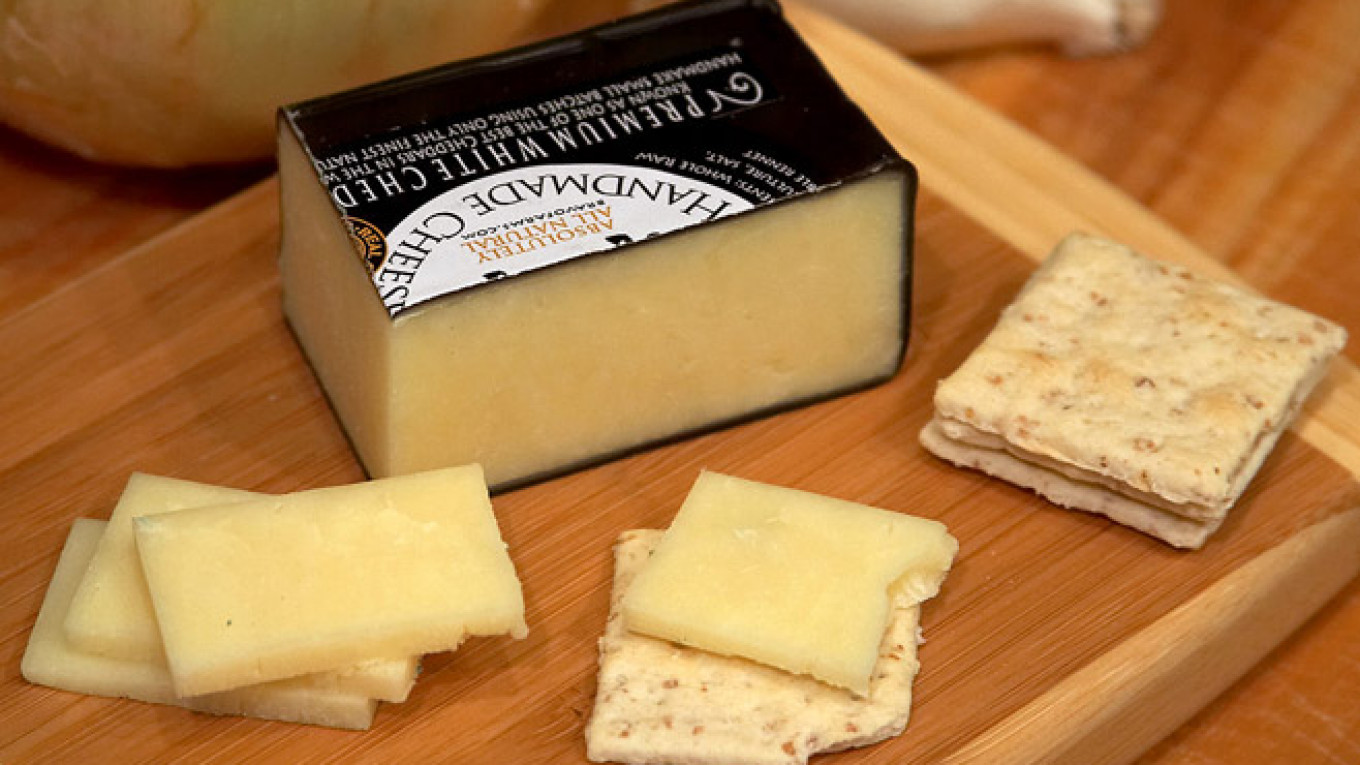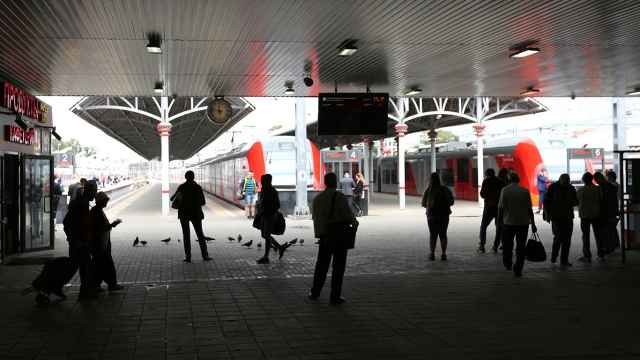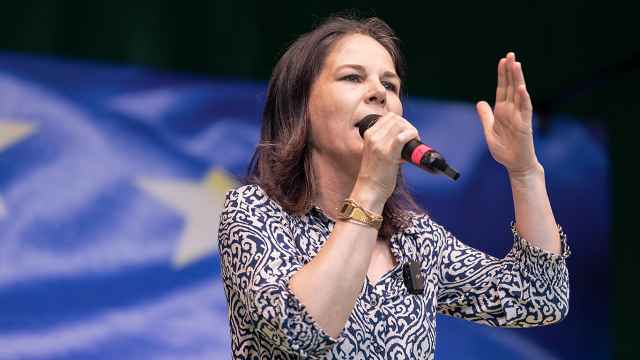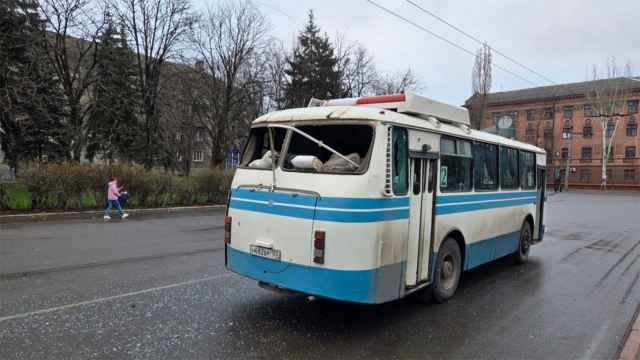Showing that he has no intention of bending to economic pressure from the U.S. and EU, President Vladimir Putin on Wednesday signed a decree “banning or limiting” imports of agricultural products from all countries that have imposed sanctions on Russia in a move that threatens to upend trade worth tens of billions of dollars.
The order comes amid warnings Wednesday that Russia is amassing troops on Ukraine's border with Russia as the conflict rages on between the Ukrainian army and separatist rebels, who, according to the West, have been bolstered by a steady stream of Russian weapons.
By targeting Western food exports, Putin aims to “ensure the safety of Russia,” according to the text published Wednesday on the Kremlin website.
Prime Minister Dmitry Medvedev's press secretary, Natalya Timakova, told business daily Vedomosti that the list of banned agricultural products will be confirmed “no later than tomorrow.”
The European Union in late July imposed its harshest sanctions yet on Russia over its alleged support of the rebels, barring major state-owned banks from EU debt markets and cutting off supplies of dual technologies and advanced oil equipment.
The United States promptly stepped up its own sanctions, followed by Japan and Canada, which have also opposed Russia's actions in Ukraine.
Russia imported food and agricultural products worth $43 billion last year, according to data from state statistics service Rosstat.
According to the European Commission, the EU last year exported 11.8 billion euros ($15.8 billion) worth of agricultural products to Russia, more than a third of Russia's total. Agricultural exports totaled 9.9 percent of the EU's exports to the region, dwarfed by the 107.7 billion euros ($144 billion) in industrial products that the EU shipped to Russia in 2013.
The decree appears to formalize a series of bans imposed by Russia's food safety and consumer protection watchdogs on products from the EU and Western-leaning former Soviet allies Ukraine and Moldova over recent weeks.
Following the EU's latest round of sanctions, Russia banned imports of most fruit and vegetable products from Poland after unveiling sanitary “violations,” striking a blow to the Polish economy and raising the prices of some products, such as apples, on the domestic market.
On Wednesday, Russia banned imports of beef and cattle from Romania, citing anxiety over an outbreak of mad cow disease.
Ukraine, the nexus of the geopolitical dispute, had its dairy products, juices and preserves banned in late July.
To avoid empty spaces on the shelves of Russian supermarkets — which could dampen Russians' patriotic fervor — the government has scrambled to bolster trade ties with politically neutral countries such as Brazil and Turkey.
Russia's state food safety watchdog, the Federal Veterinary and Phytosanitary Inspection Service, reached an agreement with Brazil on Wednesday to significantly increase imports of dairy and animal products.
The watchdog's head, Sergei Dankvert, is also scheduled to discuss increasing deliveries of fruit and vegetables from Turkey with a representative of the Turkish Food, Agriculture and Livestock Ministry on Friday, according to a statement on the agency's website.
But Russian consumers may still take a hit. The Central Bank on Tuesday warned that the bans on imports of cheap products from abroad could make it harder to control inflation, which is already far higher than the bank's target.
"We are particularly concerned that the slowdown in inflation was lower than expected in July," Interfax quoted the regulator as saying. Inflationary pressures typically ease in the summer thanks to the arrival of cheap fruit and vegetables.
The annual inflation rate fell to 7.5 percent in July, but it still remains well above the 6.5 percent increase seen in 2013 and targeted for this year.
According to the decree, the government must “take measures to ensure balanced product markets and prevent accelerated price increases on agricultural and food products.”
Material from Reuters was included in this report.
See also:
Who Is Benefiting From West-Russia Sanctions War?
Contact the author at d.damora@imedia.ru
A Message from The Moscow Times:
Dear readers,
We are facing unprecedented challenges. Russia's Prosecutor General's Office has designated The Moscow Times as an "undesirable" organization, criminalizing our work and putting our staff at risk of prosecution. This follows our earlier unjust labeling as a "foreign agent."
These actions are direct attempts to silence independent journalism in Russia. The authorities claim our work "discredits the decisions of the Russian leadership." We see things differently: we strive to provide accurate, unbiased reporting on Russia.
We, the journalists of The Moscow Times, refuse to be silenced. But to continue our work, we need your help.
Your support, no matter how small, makes a world of difference. If you can, please support us monthly starting from just $2. It's quick to set up, and every contribution makes a significant impact.
By supporting The Moscow Times, you're defending open, independent journalism in the face of repression. Thank you for standing with us.
Remind me later.






